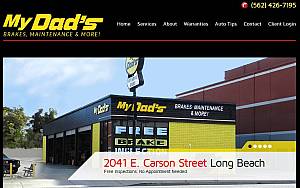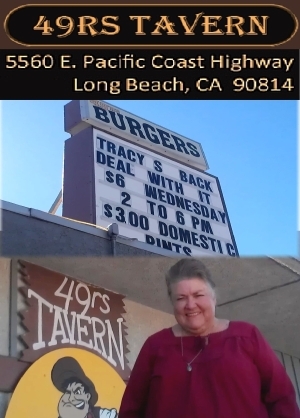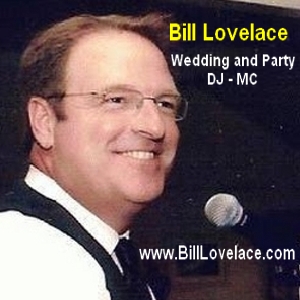Council Shrugs Police Chief's Testimony On Public Safety Issues (Incl. Diverting PD Resources From Gangs, Property Crimes, Alleged Negative Neighborhood Impacts), Votes

| (Dec. 19, 2013) -- As seen LIVE on LBREPORT.com, following nearly two and a half hours of discussion -- during which LB Police Chief Jim McDonnell urged the City Council not invite medical marijuana outlets to resume operations in Long Beach -- the City Council voted 9-0 on Dec. 17 to advance a process that could lift the city's current ban on medpot outlets and allow a still uncertain number in still uncertain locations.
Following public testimony, Councilwoman Suja Lowenthal made a motion, seconded by Councilman Steve Neal, that directed the City Attorney to prepare draft text for a new Long Beach medical marijuana ordinance that directs the City Attorney's office to draft text that will be forwarded to the Planning Commission (non-elected, Mayor chosen, Council approved) for that body's non-binding discussion, public testimony and voted recommendation(s) which will come to the Long Beach City Council for possible enactment. A Council majority will be free to change the draft ordinance text, meaning the criteria discussed on Dec. 17 and detailed below may or may not be part of an enacted ordinance: Below are the Council's current criteria for the draft ordinance: City staff acknowledged that applying the above criteria might preclude allowing marijuana outlets in some Council districts, which displeased some proponents of the outlets. Vice Mayor Garcia said he believes restricting the outlets to certain Council districts is problematic in terms of providing safe access and indicated he was supporting referral to the Planning Commission in order to advance the process. Near the start of the agenda item, Police Chief McDonnell (speaking from written text) publicly advised Councilmembers and the public: Mayor Foster, members of the City Council. Thank you for the opportunity to be able to talk about this important topic. Later in the Council proceedings, Councilman Steve Neal engaged in a colloquy with the Police Chief: Councilman Neal: I think the thing I'm struggling with the most is what initially when we enacted the original ordinance, our goal was to have safe access, and the fact that we had an ordinance in place where we knew who the legal players were, it sounds like what I'm hearing you say is, if we go down that route, it's difficult for you to enforce the ordinance when you know who the players are who are supposed to be there and there are folks outside of that realm, what is the challenge...in making these folks comply? Vice Mayor Garcia was then given the floor and asked Assistant City Attorney Mike Mais about marijuana outlet operators that had operated under city rules (under the original ordinance) and had a productive relationship with the City Hall (in contrast to collectives sometimes dubbed "rogue" operators.) City Attorney Mike Mais replied that a number of the previously cooperative entities had changed personnel and thus the new draft ordinance proposes effectively starting the selection process from scratch and treating all applicants equally. Vice Mayor Garcia said that was problematic to him in the sense that the Council would lose what he called any "thoughtful measure" in terms of history of those which had previously complied. City Attorney Mais responded that the City had also received complaints about the compliant operators (no permits granted but complied with city stated desires) including complaints from Councilmembers and the public regarding alleged nuisance activities including people coming and going at all hours, late night operations, litter in the neighborhoods, cars queing, people smoking marijuana out in front in the neighborhoods. Police Chief McDonnell used the opportunity to reiterate that if Long Beach opened the door to allow medical marijuana dispensaries, it would as a practical matter not receive resources that the L.A. County DA's office and DEA make available to cities that have banned dispensaries. "We will use whatever resources we have to be able to enforce the law. Our problem is that once the city sanctions any, then we don't have the ability to use other resources, DEA, the DA's office and others, to be able to deal with our issue, because the cities that get help from the federal agencies are the ones who are trying to take care of the issue themselves. The ones that are sanctioning some find themselves then dealing with that problem alone. [Editor's note: On Dec. 18, LBREPORT.com emailed the respective press contacts for the L.A. County District Attorney's office and the DEA and asked if it's accurate that if Long Beach enacts a new medical marijuana ordinance, the agencies wouldn't devote resources to help LB combat illegal activity. The L.A. County DA's press contact said the office declines comment at this time; the DEA press contact said that as a federal law enforcement agency DEA will continue to enforce federal drug laws.] City management (per Dir. of Development Services Amy Bodek) indicated that staff plans to schedule the item for Planning Commission consideration in February, meaning its recommendations(s) might not return to the Council for up to 60 days. That timeline audibly displeased Councilwoman Lowenthal, who said the issue has been pending for five years [ed. note: after early discussions, the Council adopted LB's first medpot ordinance in the first half of 2010.] Ms. Bodek said Planning Commissioners hadn't confronted the issues now being raised; Councilwoman Lowenthal noted that the issues were land-use related, not philosophical; said extended discussions had already taken place; and indicated favors with dispensing with study sessions on the matter. City Manager Pat West stepped in and indicated [paraphrase] that city staff wouldn't create delays but the Planning Commission might independently seek additional time and proceedings beyond what city staff envisions. The Council ultimately voted 9-0 (motion by Lowenthal, second by Neal) to direct the City Attorney to prepare draft ordinance text with the criteria described above which will be forwarded to the Planning Commission and agendized for that body's consideration. The Council then voted
blog comments powered by Disqus
Contact us: mail@LBReport.com |
               Hardwood Floor Specialists Call (562) 422-2800 or (714) 836-7050  |
Contact us: mail@LBReport.com